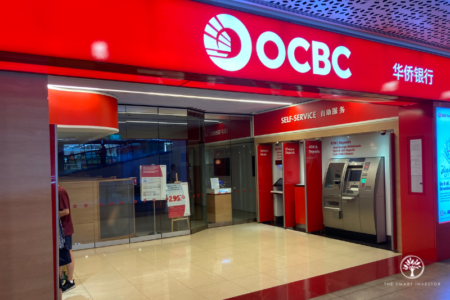Last week, the newswires reported that Warren Buffett sold US$800 million in Apple (NASDAQ: AAPL) shares in the fourth quarter last year.
That is a huge sum of money.
But context matters.
While Buffett sold US$800 million in shares of the iPhone manufacturer, his firm, Berkshire Hathaway, is still holding some US$76 billion worth of Apple shares.
In other words, the US$800 million sale accounted for just 1% of its current holdings in Apple.
Now that we know the context, his sale last quarter is not such a big deal, is it?
Tech aversion
In the late 1990s, Buffett railed against investing in technology stocks driven by the rise of the internet.
His stance was vindicated when the dotcom bubble burst in early 2000. High-flying dotcom stocks cratered. Most of them never recovered.
Yet, today, Buffett’s largest holding by far is in Apple.
In fact, his holdings in Apple today accounts for over 30% of his portfolio, larger than his holdings in Coca-Cola Co (NYSE: KO), American Express Company (NYSE: AXP) and Wells Fargo & Co (NYSE: WFC) combined.
The contrast between his holdings in Apple and the other three is stark.
After all, Coca-Cola, American Express and Wells Fargo are some of Buffett’s favourite companies that he started buying over three decades ago. In some ways, Buffett made his name using those companies.
But again, context matters.
The world has changed tremendously over the past 20 years.
In 2000, there were only around 300 million people connected to the internet. By 2010, that figure grew to two billion. Today, it is estimated that around 4.5 billion people are connected to the internet.
With that, the internet has become an integral part of our daily life.
In the process, internet-based companies have risen and taken over from traditional businesses.
In fact, the top 10 largest listed companies in the US are dominated by internet firms such as Apple, Alphabet Inc (NASDAQ: GOOGL), Microsoft Corporation (NASDAQ: MSFT), Amazon.com Inc (NASDAQ: AMZN) and Facebook Inc (NASDAQ: FB).
Adapt and adapt again
Buffett has adapted to new realities before and will continue to do so, even as he hits 90 years of age in August this year.
The Oracle of Omaha often credits the late Ben Graham as his mentor.
But Buffett’s right-hand man, Charlie Munger, believes that Buffett has evolved far beyond his original roots.
Buffett is a learning machine.
30 years ago, he invested in airline operator USAir Group. He held the stock for five painful years before throwing in the towel. The experience left a mark. As recent as 2013, he disparaged airlines as death traps for investors.
Yet, in 2016, he poured US$10 billion into airline operators, noting that the competitive landscape has changed.
Buffett learns and he adapts. We should too.
Context matters
It’s not a surprise to see Buffett evolving as an investor again. Embracing tech companies. He adapted. And we should too.
Remember again, context matters.
Berkshire Hathaway’s total stock holdings are worth almost US$250 billion today. At the same time, Buffett has a sum of US$128 billion in cash to put to work should the opportunity arise.
We should expect more money to land on his table this year.
The reason? Dividends.
It is estimated that Buffett should receive around US$4.5 billion in cash this year from dividends from his current holdings.
Get Smart: The advantage of being a small investor
We shouldn’t fret that we don’t have billions to put into stocks as Buffett does.
The downside to holding billions in cash is that Buffett has few places where he can put US$10 billion to work without causing too much commotion.
His investment choices today are limited compared to the common investor.
You and I don’t have that limitation.
There are parts of Buffett’s investment strategy we can follow, such as building a portfolio of dividend-paying stocks. And there are parts that we don’t have to follow.
We are free to purchase companies that are out of Buffett’s reach that pays a good dividend. In Singapore, we are blessed with a good selection of dividend stocks with yields that are better than the 2.5% offered by our CPF Ordinary Account.
And that’s where a good part of our money is going, in good times and challenging times.
Starting this month, The Smart Investor has started to build our Smart Dividend Portfolio. Over the next 6 months, we will be using S$20,000 to purchase 15 Singapore-listed dividend stocks. These are stocks that we are planning to hold for the long term.
The aim is simple. To create an income stream for ourselves and our families.
To weather the ups and the downs of the stock market. In good times, bad times, and even uncertain times like these.
And what’s like to teach you how to do that too.
The Smart Dividend Portfolio consists of a series of investing educational content to help you understand how we can achieve exceptional investing performance from the Singapore stock market.
Using our own money, we will bring the investing lessons to life. We will share with you when we buy a stock, why we bought the stock, and how we manage our own stock portfolio. And when it comes to it, we’ll also explain when it is time to sell a stock, and why we did it.
CLICK HERE to read more about The Smart Dividend Portfolio, and how it can help you to grow your wealth.
We’re currently running a special $100 + $100 promo. There is a $100 discount for our one year subscription PLUS we’re giving you an additional $100 off with the coupon PLUS100. (Just key in PLUS100 in coupon field, and you’ll get the extra discount).
Click the button below to find out more about the service and secure your discount now!





